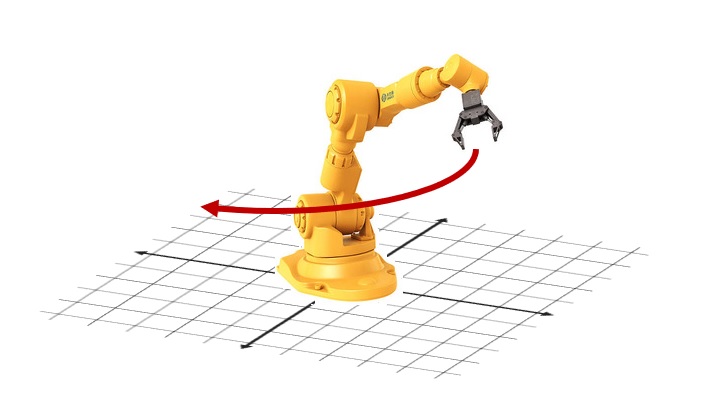1 Jun 2023
Robot Dynamics
Dynamics Notes
Dynamics Learning Notes 01

Book link: A Mathematical Introduction to Robotic Manipulation (Page 155~164)
Keypoints
- Newton-Euler Equations
- Lagrange Equations
Newton-Euler Equations
Newton Equation: $F=ma$
Euler Equation: $\tau=I\dot{\omega}+\omega \times I\omega$
Body frame Newton-Euler Equation: $\begin{bmatrix}mI & 0 \\ 0 & \mathcal{I}\end{bmatrix}\begin{bmatrix}\dot{v^b} \\ \dot{\omega^b}\end{bmatrix}+\begin{bmatrix}\omega^b \times mv^b \\ \omega^b \times \mathcal{I}\omega^b\end{bmatrix}=\begin{bmatrix}F^b \\ \tau^b\end{bmatrix}$
Lagrange Equations
- Lagrangian: $L=T-V$
- $T$: Kinetic Energy
- If T of a rigid body, then $T=\frac{1}{2}m\dot{q}^T\dot{q}+\frac{1}{2}\omega^T I \omega$
- $\dot{q}$: Linear velocity about translation
- $\omega$: Angular velocity about rotation
- Derivation:
- First, since $RR^T=1$, $T=\frac{1}{2}m(R\dot{q})^T(R\dot{q})+\frac{1}{2}\omega^T I \omega$
- with generalized inertia matrix $M=\begin{bmatrix}mI_3 & 0 \\ 0 & \mathcal{I}\end{bmatrix}$ where $I_3$ is a 3x3 identity matrix and $\mathcal{I}$ is the inertia matrix of the rigid body.
- then $T=\frac{1}{2}{\vec{v^b}}^TM{\vec{v^b}}$ where $\vec{v^b}=\begin{bmatrix}R\dot{q} \\ \omega\end{bmatrix}$, the generalized velocity w.r.t. the body frame.
- $V$: Potential Energy, such as gravity $-mgh$, spring, etc.
- Lagrange Equation: $\frac{d}{dt}(\frac{\partial L}{\partial \dot{q}})-\frac{\partial L}{\partial q}=Q$
- $Q$: Generalized Nonconservative Force (External Force), such as joint torque, etc.
- $\frac{d}{dt}(\frac{\partial L}{\partial \dot{q}})$: Generalized Inertia Force (Internal Force). Also the change rate of momentum.
- $\frac{\partial L}{\partial q}$: Generalized Potential Force also named as conservative force, such as gravity, spring force, etc.
Note: The generalized force is the sum of the generalized inertia force and the generalized potential force.
Dynamics of Open-Chained Manipulator
- Rearrage terms as: $M(\theta)\ddot{\theta}+C(\theta,\dot{\theta})\dot{\theta}+N(\theta)=\tau$
- $M(\theta)\ddot{\theta}$ is the inertia force, which depends on the acceleration of the joint.
- $C(\theta,\dot{\theta})\dot{\theta}$ is the Coriolis and Centrifugal force, which depends on the angular velocity of the joint.
- $N(\theta)$: Gravity force and any other force except the joint torque. It includes the potential force and the friction force.
- $\tau$: Torque
Too complicated math formula to write in markdown. Please refer to the book or RDKDC notes.


